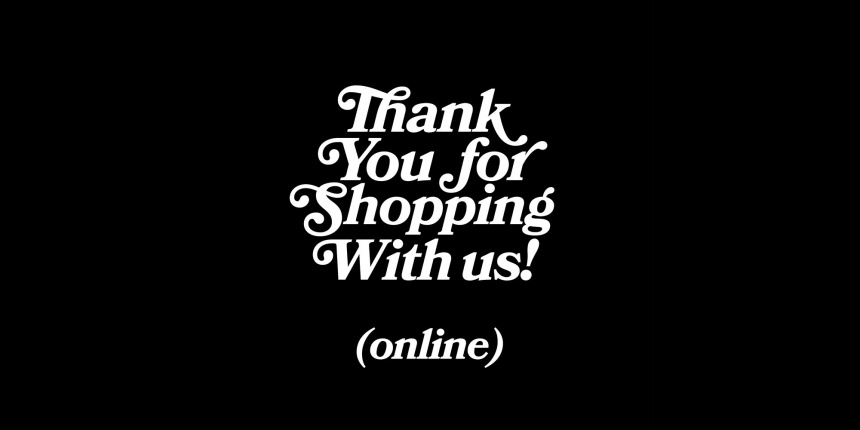1. Africa = A growing economy favourable to business
In 2015, studies from diverse international financial groups, including the International Monetary Fund, predicted some of the very encouraging figures below.
- By 2020, 13 of the 20 fastest growing economies in the world are forecast to be in Africa. This makes Africa the 2nd fastest growing continent after Asia-Pacific.
- In 2020, there will be 25 million people of classes A and B. These are 23% more than the UK and Germany combined.
- Between 2012 to 2030, the average GDP growth in Africa will be 4.8% vs 4.6% in Asia.
- Middle class = people who spend between 2$ to 20$ a day. From the African Development Bank, there are 300M who fit into this category in Africa = ¼ inhabitants to grow to 1 billion by 2060. This would make Africa the fastest growing middle class in the world.
- Nigerian tourists in 2015 = 3rd largest international spenders in the UK after Middle East and China.
It is evident that most of those figures have changed since the Covid-19 pandemic like in every continent. The OECD 2020 economic forecast in July 2020 predicted a global Gross Domestic Product (GDP) at -6% or United States at -7.3% or Eurozone at -9.1% for instance. But despite this worldwide recession being the worst economic crisis in nearly 100 years, there is one sector among very few, which has seen a huge increase. Indeed, there has been a tremendous acceleration of E-commerce since March 2020 everywhere in the world. For example, prior to 11 March 2020, only 43% of US consumers had shopped online. By 12 June 2020, there were 90% of US consumers who had shopped online, a recent study shows. This is no different in Africa, where the shift has gone even bigger because online retail sales used to represent less than 3% of total retail sales in the continent in 2019. That number is far from China for instance where online sales counted for around 35% of their total retail sales in 2019. Or the United Kingdom where online sales counted for up to 18% of their total retail sales in 2019, according to many studies. So, if you combine those facts, while some companies will see Africa as a minor E-commerce market, others like us Papis4Business will see it as a huge potential for growth. This is the reason why I will share here some examples to show why it is time to speed E-commerce in Africa. There will be a focus on the Beauty industry where I spent 13 years, including in Digital and E-commerce for over three years with British Online pure players.
2. Africa = An opportunity for Beauty
- African women use up to 7x more products for their hair than Caucasian women.
(Sources: L’Oréal Market study)
- According to Euromonitor International, the Beauty industry is a million-dollar industry in Africa.
- Estimation in 2011 = 4 billion US dollars in South Africa, over 260 million in Nigeria and Kenya. Yet 1 billion US dollars in Nigeria alone in 2015.
(Sources: Forbes, Financial Times & Smallstarter.com)
- Beauty and Skincare products are the fastest selling items in Africa after food.
(Sources: smallstarter.com, borgenmagazine.com & added-value.com)
- Up to 20% of Beauty products sold in Africa are hair care: shampoos, pomade, gels, conditioners, colouring, relaxers and styling.
- Nearly 30% of all cosmetic products sold every year in Africa are Skincare products.
(Sources: smallstarter.com, borgenmagazine.com & added-value.com)
- International Beauty players in Africa: L’Oréal, Nivea, Dove, Estee Lauder, Olay, Neutrogena.
(sources: smallstarter.com)
- Interest for the continent from 3 main international Beauty and Luxury groups since 2010:
- L’Oréal = Acceleration with subsidiaries in South Africa, Ghana, Ivory Coast and Kenya. Acquisition of local brands. Recruitment of talents from Europe. Partnerships with strong local distributors. New IT Cosmetic stores in South Africa or Maybelline New York’s store in Ivory Coast, etc.
- Estée Lauder: Clinique with Shades of Africa campaign. Success of new Mac stores in the African continent (people queuing in South Africa, Nigeria, Kenya & Ivory Coast).
- LVMH = Acceleration for their Beauty Division with Parfums Christian Dior.
3. Africa = An opportunity for E-commerce
- 67% of African population have a mobile = 700M out of 1.2 billion inhabitants
- 75 billion US dollars in E-Commerce revenue in Africa to be generated by 2050, about 10% of Retail Sales of the continent and 40% of annual growth between 2015 to 2025.
(Sources: McKinsey and Company)
- 50% of people in Africa are around 20 years old = world youngest workforce by 2050. This is a huge opportunity for a brand to reach this internet savvy generation.
- African urban consumers spending will more than double by 2030.
- High rents in African capitals, bad traffic, very few shopping malls for international brands to express themselves (over 70% purchase from traditional markets), fake products, and gaps in the supply chain create an opportunity for Online shopping to close the gap between demand and supply.
(Sources for the points above: BBC Africa, articles and/or videos from various international financial groups)
- No major international E-commerce players: none of these brands are present in Africa (Amazon, ASOS, Sephora, THG, etc.). Local players are mainly in South Africa but as well Nigeria and East Africa with a big presence of Jumia Group. They are the biggest online marketplace in Africa. They too offer payment service and logistics service (packages could be shipped and delivered from sellers to different consumers). They were valued at 1 billion US dollar in 2016 and went public on the New York Stock Exchange (NYSE) in April 2019, raising $196 million. But, since November 2019, they have been struggling with closure of some of their operations in the continent.
As we can see above, there are many positive signs for an interest in E-commerce in Africa. And even though it is hard to get data during the Covid-19 pandemic, it is obvious that in a continent where at least 70% of the commerce is informal, some people had to rely on E-commerce shopping as many countries in Africa had curfew in place for weeks. Like all around the world, this brought new shoppers who never shopped online before. And those new customers, if served well, are here to stay. But like in any market, especially in these changing markets like the so called KINGS (Kenya, Ivory Coast, Nigeria, Ghana, South Africa), it is key to enter with the right go-to-market strategy should a beauty brand and/or a retailer wants to succeed in E-commerce in Africa. The kind of strategy that Papis4Business can deliver to enterprises to help them unleash their full potential to thrive successfully in Africa.

Strategy
- Transfer and/or create an advanced technology – Create a world class E-commerce system like the one we have in China, USA, or UK. Or meet and plan with local E-commerce players for a joint-business partnership.
- Raise awareness among local customers to become more online and digital savvy.
- Create a tailor-made logistic & transport system with first class norms. E.g. strong partnerships with local partners + zero delay delivery rules + latest tools and/or software for local warehouses, etc.
- Meet with governments, telecommunications companies, and banks to discuss efficiency and security of payment for the customers.

Conclusion
As we have seen, like any continent, Africa has its own reality when it is about doing business, and this is no different to E-commerce. Hence it is key to know the market first and get advice before going further in your project.
I have tried to share here some strategic advice that I hope will give people more confidence in investing in E-commerce in Africa. It is a continent that we are passionate about. At Papis4Business, we are here to help companies in diverse Online & Digital projects: enter Africa with the right E-commerce strategy, accelerate their digital transformation within the continent, create a new Direct-To-Consumer model, maximize the right social media platforms to boost sales, etc.
To see how we can help your E-commerce business thrive in Africa, please get in touch: info@papis4business.com











